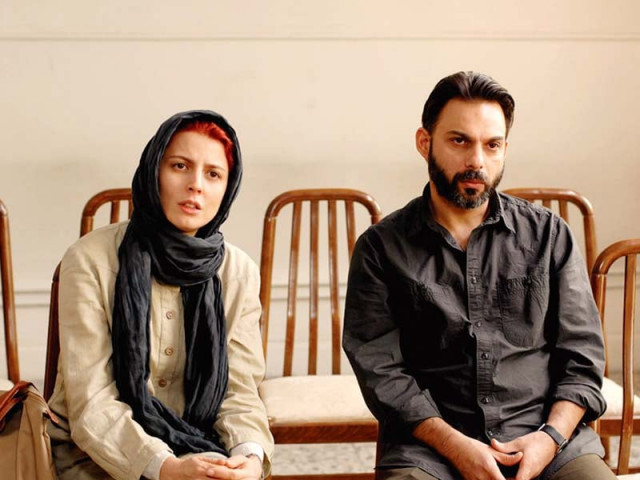Resilient Iranian cinema takes centre stage at Cannes Film Festival
Films, actors compete at event despite country’s tough regulations

Farhadi gave great visibility to Iranian cinema by going for wide distribution of A Separation. PHOTO: FILE
Most learn to live with the restrictions but some leave the country, seeking more artistic freedom.
The Salesman by Oscar-winning director Asghar Farhadi is challenging for the prestigious Palme d’Or while Varoonegi (Inversion) directed by Bethnal Behzadi, is competing in the sidebar section Un Certain Regard.
Farhadi’s latest effort has already generated interest from US distributors, The New York Times quoted French co-producer Alexandre Mallet-Guy as saying. This year at Cannes, two Iranian actors compete for Best Female Actor; self-exiled Golshifteh Farahani in Paterson, by the award-winning US director Jim Jarmusch, and Taraneh Alidoosti in Farhadi’s The Salesman.
The momentum is partly due to Farhadi’s talent, most notably marked by his best foreign film Academy Award in 2012 for A Separation, a dark but touching tale of family break-up set in Tehran.
“With the large global distribution of this film, Farhadi gave a great visibility to Iranian cinema, that in fact started long before him,” said a professor at the Sorbonne in Paris, specialising in Iranian cinema, Agnes Devictor.
A Separation won a Golden Globe in the same category and his follow-up, The Past, set in France, was nominated for the Palme d’Or in 2013. Farhadi is not alone in gaining accolades. In 2015, Ida Panahandeh’s debut feature film Nahid won the promising future prize in Un Certain Regard. Dozens of cinemas screened the film in France, Spain and Greece.
Distribution companies such as the France-based Noori Pictures, headed by Katayoon Shahabi, have played a major role in bringing Iranian films to a wider audience. Shahabi, a “lioness” who has become “the embodiment of independent film abroad” according to Devictor, is among the eight jurors for Cannes 2016. The success abroad reflects a continued rise at the box office.
Domestic sales in the first month of the Persian year (March 20 to April 20) totalled 267 billion rials ($8.9 million), more than the entire annual box office two years ago, media reported.
But film-making in Iran has its own challenges. Jafar Panahi’s film Taxi was barred from screening in Iran won the Golden Bear in Berlin film festival in 2015. However, the movie is not allowed to exit the country or make films. At the beginning of Cannes this year more than 30 major European film organisations appealed to Iran’s government to grant clemency to a young director sentenced to 223 lashes.
Other stars have fallen foul of the authorities. Farahani, the lead actor in Farhadi’s About Elly, was one of those who left Iran a few years ago. The first top Iranian actor to star in a Hollywood film, she raised eyebrows in her homeland when she appeared in Ridley Scott’s Body of Lies in 2008, alongside Leonardo DiCaprio.
But beyond the big screen Farahani, who is starring in the fifth of the Pirates of the Caribbean films, caused major controversy in her homeland by posing nude for a French magazine. On another occasion, Leila Hatami, Farhadi’s lead actor in A Separation and a Cannes 2014 juror was criticised by Iranian authorities after kissing the Cannes president Gilles Jacob on the cheeks when on the red carpet. And, she was later made to apologise.
Published in The Express Tribune, May 22nd, 2016.
Like Life & Style on Facebook, follow @ETLifeandStyle on Twitter for the latest in fashion, gossip and entertainment.



















COMMENTS
Comments are moderated and generally will be posted if they are on-topic and not abusive.
For more information, please see our Comments FAQ